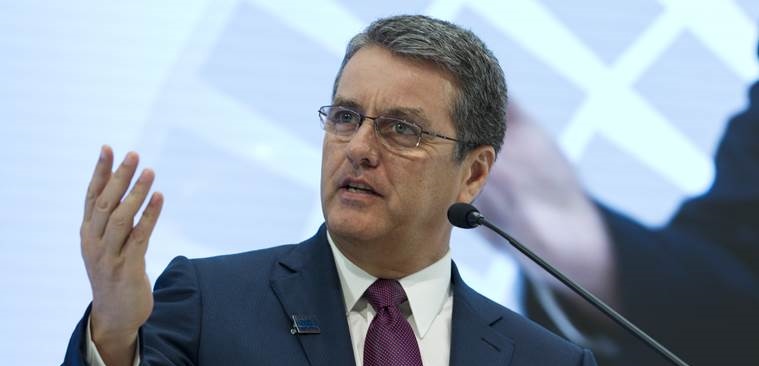The global economy at stake
April 17, 2018 | Expert Insights

As Washington and Beijing continue to threaten fresh trade sanctions against one another, the World Trade Organization has warned that any escalation would threaten the world economy.
Background
The United States and China are two of the largest economies in the world. Each considers the other as a partner in trade and an adversary in geopolitics. China's trade surplus with the United States widened in 2017 while total foreign trade volume maintained rapid growth.
Former chief executive of Hong Kong Tung Chee-hwa recently said that a trade war must be avoided. “In such a big relationship, there is bound to be disagreement, but rash action on either side will only create the environment for a very serious trade war, which is not good for any country. Patient discussion and negotiation, particularly considering the long-term prospects of the relationship, will be very important,” he said.
World economy
A decade after the financial crisis, economies have begun showing signs of recovery. In 2017, International Monetary Fund (IMF) projected a higher than expected growth for China, Japan and the Eurozone countries like Germany, France, Italy and Spain. Due to the strong performances expected from these nations, global growth is expected to be 3.5%. IMF’s chief analyst Obstfeld said, “The recovery in global growth that we projected in April is on a firmer footing; there is now no question mark over the world economy’s gain in momentum.”
World Trade Organization
The WTO is the only international organization handling the regulations of trade between countries. WTO’s agreements are negotiated and signed by most of the trading nations around the world and approved in respective parliaments. The organization’s primary objective is to make sure that trade flows as predictably, effortlessly, efficiently, and freely across nations.
Analysis
In 2018, Washington and Beijing have increasingly engaged in charged back and forth remarks regarding trade practices. US President Donald Trump’s announcement of tariffs on US$60 billion worth of Chinese imports in 2018 has raised the prospect of a trade war. The upcoming trade sanctions triggered retaliation from China’s foreign ministry, which said that Beijing would “take all legal measures to protect our interest.” On March 23rd 2018, China unveiled tariffs on $3 billion of US imports as a response to the US’ actions. In addition to these tariffs, it has been reported that China will take up legal action against the US at the World Trade Organization.
Now, experts in the World Trade Organization have warned that any recovery the global economy has made in the recent years would be lost if escalation continues. "… this important progress could be quickly undermined if governments resort to restrictive trade policies, especially in a tit-for-tat process that could lead to an unmanageable escalation," WTO Director-General Roberto Azevedo said in a statement. "A cycle of retaliation is the last thing the world economy needs. The pressing trade problems confronting WTO members is best tackled through collective action. I urge governments to show restraint and settle their differences through dialogue and serious engagement.”
Christine Lagarde, the IMF’s managing director, on Wednesday warned that “darker clouds” were looming over the global economy. “Governments need to steer clear of protectionism in all its forms,” she said in a speech in Hong Kong. “History shows that import restrictions hurt everyone.”
“An escalating cycle of retaliation may yet be avoided if negotiations manage to diffuse tensions,” WTO economists wrote. “But this is not guaranteed.” In addition, WTO has warned that already the trade tensions have affected investments and business confidence across the world.
In January 2018, the International Monetary Fund projected an optimistic growth of 3.9% globally. The group is expected to release its latest estimates shortly. The WTO has been optimistic about global trade as well. It has noted that world goods trade will grow 4.4% this year.
Assessment
Our assessment is that markets remain concerned about the potential of an escalated trade war between China and the US. This will also affect the overall growth of global economy. With investor confidence down, it will become difficult to maintain the momentum that has been built in recent years, in the aftermath of the financial crisis. China and the US are among the strongest and largest economies in the world and any trade dispute between the two will have large-scale and widespread repercussions for the rest of the world. If the two parties are not able to come to a consensus soon and escalation continues, are we at the precipice of yet another global meltdown?








Comments